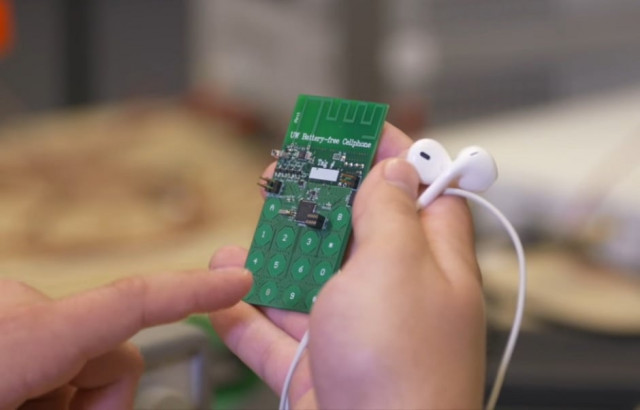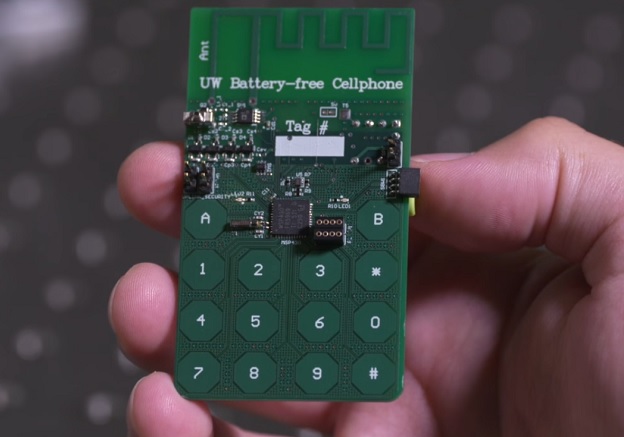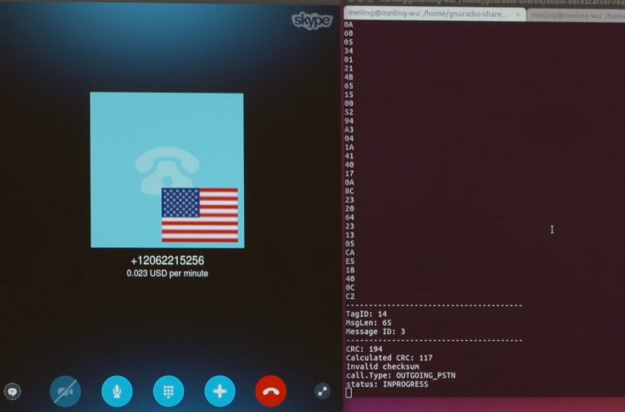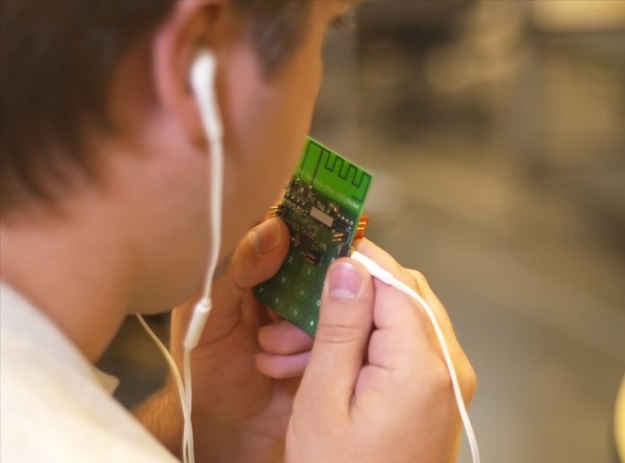Researchers build world’s first battery-free mobile phone
Device powers itself by extracting energy from ambient radio signals and light

Researchers were able to receive incoming calls and dial out with the battery-free phone on Skype. PHOTO: UNIVERSITY OF WASHINGTON
“We’ve built what we believe is the first functioning cellphone that consumes almost zero power,” co-author Shyam Gollakota, an associate professor in the Paul G Allen School of Computer Science & Engineering at the UW told the University of Washington blog.
 PHOTO: UNIVERSITY OF WASHINGTON
PHOTO: UNIVERSITY OF WASHINGTONUsing off-the-shelf components on a printed circuit board, the team demonstrated that the prototype can perform basic phone functions — transmitting speech and data and receiving user input via buttons. Using Skype, researchers were able to receive incoming calls, dial out and place callers on hold with the battery-free phone.
Lithium-ion battery inventor creates fresh technology for fast-charging batteries
“To achieve the really, really low power consumption that you need to run a phone by harvesting energy from the environment, we had to fundamentally rethink how these devices are designed,” says Gollakota.
 PHOTO: UNIVERSITY OF WASHINGTON
PHOTO: UNIVERSITY OF WASHINGTONThe team, consisting of computer scientists and engineers from the University of Washington, achieved this feat by eliminating a power-hungry step in most modern cellular transmissions: converting analogue into digital data.
Samsung to unveil world's first stretchable display
Instead, the device uses tiny vibrations from a microphone that occur when a person is talking into a phone. An antenna then converts the motion into changes in standard analog radio signal emitted by a cellular base station, essentially encoding speech patterns in reflected radio signals in a way that uses almost no power.
 PHOTO: UNIVERSITY OF WASHINGTON
PHOTO: UNIVERSITY OF WASHINGTON“The cellphone is the device we depend on most today. So, if there were one device you’d want to be able to use without batteries, it is the cellphone,” said faculty lead Joshua Smith, professor in both the Allen School and UW’s Department of Electrical Engineering. “The proof of concept we’ve developed is exciting today, and we think it could impact everyday devices in the future.”
This is the world’s first smartphone with a 360-degree camera
The battery-free phone, however, does require a small amount of energy, which amounts to a mere 3.5 microwatts. To harvest this energy the phone gathers power from ambient radio signals transmitted by a base station up to 31-feet away. This enables the device to communicate with a base station 50-feet away.
The researcher at the University now plan to improve the phone’s operating range and encrypting conversations to make them secure. The team is also working to stream video over a battery-free cellphone and add a visual display feature to the phone using low-power E-ink screens.






1701351241-1/Afghan-refugees-(3)1701351241-1-208x130.webp)












COMMENTS
Comments are moderated and generally will be posted if they are on-topic and not abusive.
For more information, please see our Comments FAQ